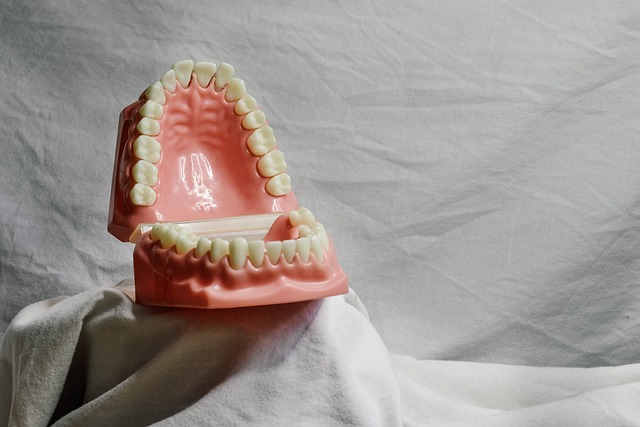Running a successful dental practice requires strategic financial planning, particularly through tailored insurance coverage. This includes general liability, professional liability (malpractice), property, and employee benefits insurance. By assessing unique risks and selecting customized policies, dental offices can protect against accidents, malpractice, property damage, staff well-being, and operational disruptions. Choosing an insurance provider specializing in dental coverage ensures financial stability, efficient claims processing, and comprehensive protection. Ignoring specific needs or missing policy reviews can expose practices to significant financial risks. Staying current with insurance regulations is crucial for compliance, patient satisfaction, and competitive practice in the digital age.
Protecting your dental practice with comprehensive insurance is essential. This guide navigates the crucial aspects of understanding and selecting the right coverage for your office, including various policy options and assessing unique risks. Learn how to choose a reputable provider, avoid common pitfalls, and stay compliant with evolving regulations specific to dental practices. Discover expert strategies to ensure peace of mind and robust financial protection.
- Understanding Dental Practice Insurance Needs
- Types of Insurance Coverage for Dental Offices
- Assessing Risk and Customizing Policy Options
- Choosing the Right Insurance Provider
- Common Mistakes to Avoid in Dental Practice Insurance
- Staying Up-to-Date with Insurance Regulations
Understanding Dental Practice Insurance Needs

Running a successful dental practice involves more than just excellent patient care; it also requires careful financial planning and management, particularly when it comes to insurance. Dental offices have unique needs due to the specialized nature of their work and the potential for significant financial liabilities. Therefore, comprehensive insurance for dental offices is not just beneficial but essential.
When considering insurance for dental offices, practice owners should assess their coverage options, including general liability, professional liability (also known as malpractice insurance), property insurance, and employee benefits. General liability protects against claims of bodily injury or property damage to patients and visitors. Professional liability safeguards against malpractice suits arising from alleged negligence in dental treatment. Property insurance covers the physical structure and equipment of the practice, while employee benefits ensure the well-being of your team. Tailoring these coverage options to fit specific needs ensures that your dental practice is adequately protected, allowing you to focus on delivering quality oral health services.
Types of Insurance Coverage for Dental Offices

Dental offices, much like any other business, need comprehensive coverage to protect against unexpected expenses and ensure smooth operations. When it comes to insurance for dental offices, several types are available, each catering to different aspects of practice management.
The primary categories include general liability insurance, which covers accidents or injuries on the premises; professional liability (also known as malpractice) insurance, crucial for protecting against claims of negligence during dental procedures; and property insurance to safeguard assets and equipment from damage or theft. Additionally, dental offices can opt for worker’s compensation coverage for employees and practice disruption insurance, which provides financial support during unforeseen closures.
Assessing Risk and Customizing Policy Options

When it comes to insurance for dental offices, assessing risk is a crucial step in crafting an effective policy. Every dental practice has unique needs and potential hazards. For instance, procedures with higher risks of complications or specific types of equipment require tailored coverage. Insurance providers offer a range of policy options, allowing practices to customize their protection based on these assessments.
By evaluating factors like the number of patients seen daily, specialized services offered, and existing safety protocols, dental office owners can select plans that align perfectly with their operations. Customized insurance for dental offices not only ensures comprehensive protection but also helps in managing costs by covering specific risks relevant to the practice, ultimately providing peace of mind for both practitioners and patients.
Choosing the Right Insurance Provider

Selecting the ideal insurance provider is a pivotal step in securing comprehensive protection for your dental practice. When considering options for insurance for dental offices, several key factors come into play. Firstly, assess the provider’s expertise in catering to dental practices and their understanding of the unique risks associated with this industry. Look for insurers who offer tailored policies designed specifically for dental offices, ensuring coverage for equipment, staff liability, professional malpractice, and any other relevant areas.
Additionally, evaluate the financial stability and reputation of potential insurance companies. Research their claims processing efficiency, customer service track record, and industry reviews to gauge their reliability. Opting for a reputable provider with a proven history of fair claims management can make a significant difference in the event of an unforeseen incident.
Common Mistakes to Avoid in Dental Practice Insurance

Many dental practices fall into common traps when it comes to their insurance coverage, often overlooking essential aspects that can leave them vulnerable. One major mistake is assuming one-size-fits-all insurance plans; every dental office has unique needs. What works for a small solo practice might not provide adequate protection for a larger clinic with multiple specialists. Therefore, it’s crucial to custom-tailor your insurance to cover all specific risks and responsibilities. For instance, failing to account for professional liability, property damage, or inadequate coverage for advanced equipment can lead to financial strain in the event of accidents or disasters.
Another error is not regularly reviewing and updating insurance policies. Dental practices evolve, and so do their requirements. New regulations, technological advancements, and changes in patient demographics may impact your practice’s risk profile. Regular policy assessments ensure you have the right coverage for current and future scenarios, protecting your dental office from potential financial setbacks.
Staying Up-to-Date with Insurance Regulations

Staying current with ever-changing insurance regulations is a critical aspect of running a successful dental practice. The landscape of dental insurance can be complex, with policies and coverage options varying across different providers. Dental offices must stay informed about updates to ensure they offer their patients the best choices while adhering to legal requirements. Regularly reviewing and understanding these regulations allows practices to make informed decisions regarding pricing, acceptance of plans, and patient communication.
For dental professionals, keeping up with insurance trends means staying ahead of the curve in a competitive market. By doing so, practices can avoid penalties, maintain compliance, and provide seamless experiences for their patients seeking dental care coverage. This proactive approach is essential when it comes to attracting and retaining clients, especially in today’s digital age where consumers are increasingly conscious of healthcare options and costs.
